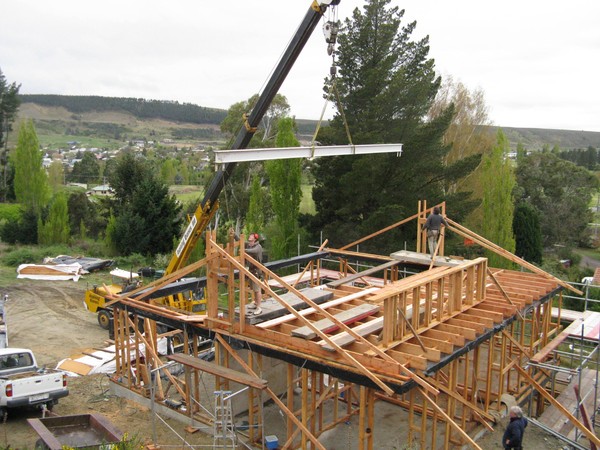Hamilton-based mortgage broking firm Omega Capital has seen demand for non-bank finance from small developers skyrocket in the past two years.
Omega Capital director Scott Massey said growing numbers of people are undertaking small scale developments on blocks of land that they own in populated areas.
“They may have been holding the blocks, which are usually between half a hectare to five hectares in size, with an eye to future development.
“And now they are taking advantage of the current market conditions – ie: land shortages and soaring demand – and electing to subdivide and build perhaps four, six or eight townhouses on the space.”
Creative financing solutions for such projects are increasingly being directed to independent companies like theirs rather than the banks, he said.
“We don’t have exact figures for the increase, but I would estimate there has been a 50% increase in such approaches.
“That’s pretty significant. While that is just through our business, I think it’s probably a good indicator for the broader market too.”
For developers, flexibility is one of the key attractions of non-bank lending alternatives.
Massey said the lending criteria involved is quite different to that of the banks.
“Banks are quite rigid in their requirements – around LVRs, risk profiles and the like. Alternative financiers tend to be more flexible in their approach.”
However, it was important that prospective developers wanting to take the non-bank finance route not have a fixation on interest rates, he said.
“Interest rates are only going to be a small part of a development project’s overall costs. Having to pay more a bit more interest than to a bank shouldn’t make a big dent in the overall cost of a project.
“Paying a bit more in interest, could well mean the project can actually be carried out. People should look at what is being offered and the flexibility involved, rather than just interest rates.”
It’s also important to note that the new LVRs don’t affect the non-bank lending options available, Massey added.
“There is a lot of capital around for small developments. It’s just a matter of finding and structuring the right loan for a project.”
iLender director Jeff Royle agreed that there has been an increase in borrowers looking for non-bank finance to carry out small development projects.
He said it was a noticeable increase, which was due to a combination of factors including the new LVR restrictions and a general tightening of bank lending criteria.
“Not only are we seeing a jump in the number of first time non-bank lending enquiries, but we are seeing more enquiries non-bank finance for small developments and subdivisions.”
In his view, banks are often not keen on financing such projects anyway while non-bank lenders are far more flexible about such projects.
“Yes, there will be higher interest rates if you opt for non-bank finance, but I would argue that if that is an issue for the project cost you probably shouldn’t be doing it anyway.”
Royle said structuring non-bank finance funding for development projects could sometimes be a bit complex.
For example, it might be that a non-bank mortgage lender wouldn’t cover construction costs on a development, which would mean finance for the build would have to come from a different non-bank financier.
However, any such issues are easily overcome with the help of a good broker, he said.
Given changes under Auckland’s Unitary Plan, along with housing supply shortages in markets around the country, the number of small development projects in the pipeline is only likely to increase.
As such, the trend for smaller scale developers to head to non-bank lending alternatives is only set to grow, Royle said.




 Search
Search
